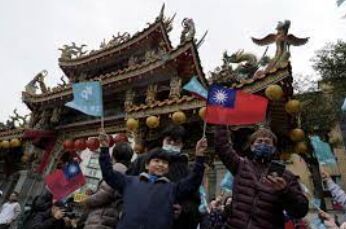Biden Administration's Unofficial Delegation to Taiwan Set to Ruffle Feathers in Tense Relationship with Beijing
The Biden administration plans to send former senior officials to Taiwan ahead of its presidential election, despite Beijing's opposition, in an effort to engage with the new government and promote stability.
The Biden administration is set to send an unofficial delegation of former senior officials to Taiwan following the self-governed island's upcoming presidential election, a move that has the potential to ruffle feathers in an already-tense relationship with Beijing. A senior administration official confirmed the plan on Wednesday, citing the importance of engaging with Taiwan's new government and conveying U.S. policy in the region, with hopes of contributing to peace and stability. However, Beijing has staunchly opposed any official exchange between the U.S. and Taiwan, with Chinese officials labeling a planned delegation as a form of "official exchange."
Biden plans to send a high-level delegation of former top officials to Taipei after the election in Taiwan on Saturday.
— Zagonel (@Zagonel85) January 10, 2024
One former US official said Biden’s decision to send the delegation to Taipei so soon after election was risky move that could backfire.
White House has… pic.twitter.com/bpfpxnyFtI
This opposition is not new, as past U.S. interactions with Taiwan have triggered strong reactions from China, including missile firings and blockades following visits by U.S. officials. The Biden administration has made it clear that it does not endorse any specific political party or candidate in Taiwan's upcoming presidential election, aiming to avoid adding fuel to the fire of regional tensions. Beijing, in turn, has expressed its disapproval of potential victory by a pro-independence candidate from the ruling Democratic Progressive Party, highlighting the complex dynamics at play in the region.
With tensions expected to rise ahead of Taiwan's election, the U.S. official acknowledged the need for "contingency conversations" and emphasized the administration's opposition to outside interference in the election. This sentiment was echoed by Taiwanese Foreign Minister Joseph Wu, who called out China's repeated interference and urged Beijing to refrain from meddling in other countries' elections. While the U.S. and China work to manage difficult situations and avoid unintended conflicts, the planned delegation to Taiwan highlights the delicate balancing act in the U.S.-China-Taiwan relationship as each player seeks to assert its influence and interests in the region.




